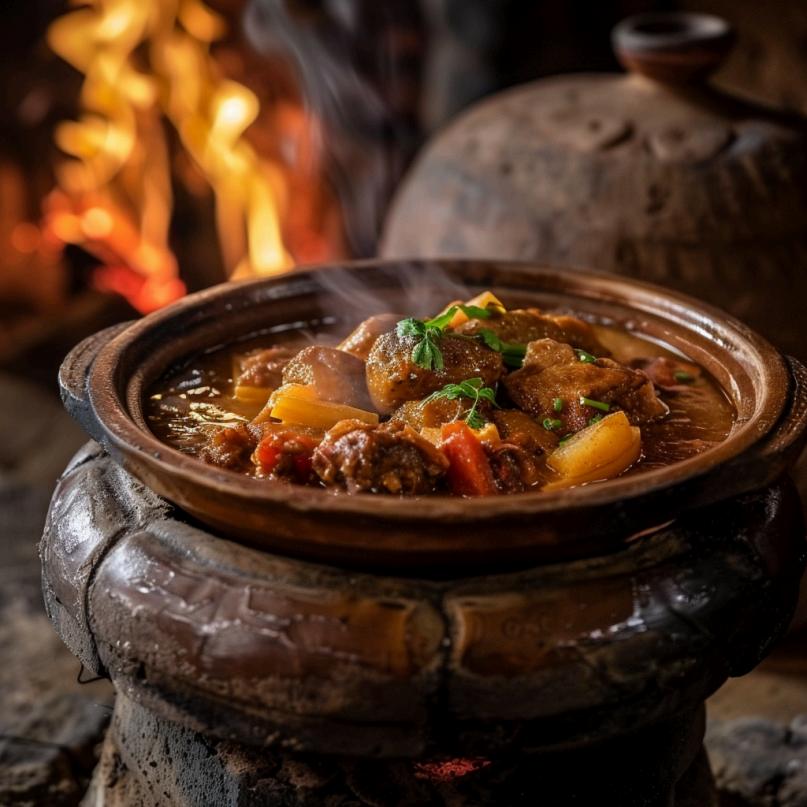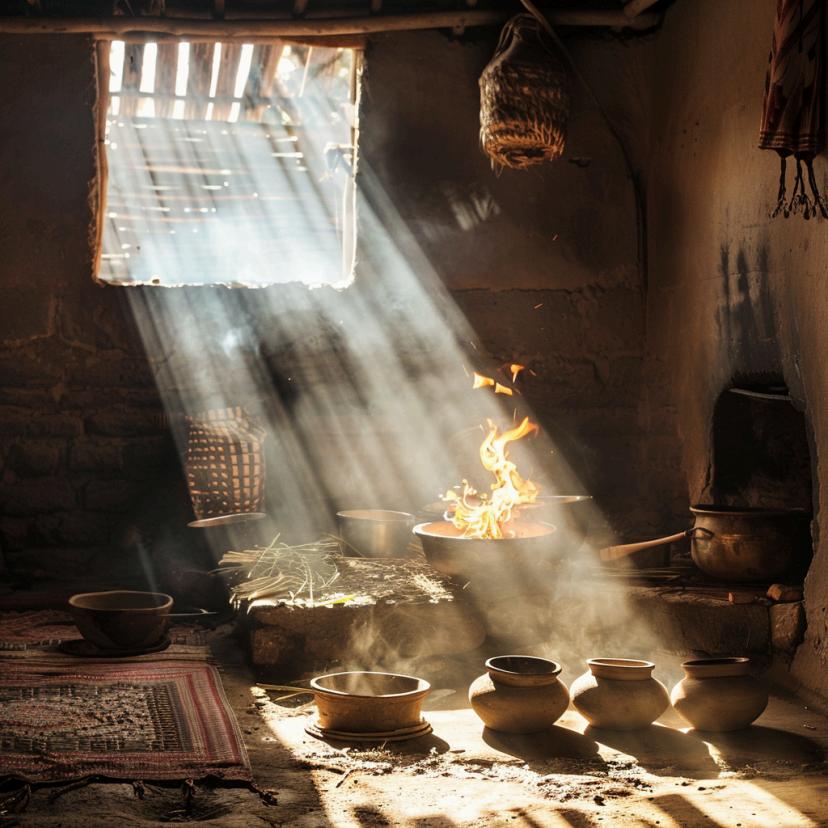
2 minute read
People of Africa
from People of Africa

Ancient Origins Clay pottery has been an integral part of African culture for thousands of years, with evidence of pottery-making dating back to ancient civilizations such as the Nok culture in western Africa and the Kerma culture in Sudan.
Cultural Significance Clay pots served multifaceted roles within African societies, ranging from utilitarian purposes such as cooking, storing food, and carrying water to symbolic and ritualistic functions in ceremonies, rituals, and everyday life.
Traditional Techniques Pottery-making techniques were passed down through generations, with skilled artisans using locally sourced clay, natural pigments, and traditional firing methods to craft durable and functional vessels adorned with intricate designs, patterns, and symbols unique to each region and ethnic group.

and sustainable alternatives to modern cooking utensils. Their production requires minimal energy and resources, making them environmentally friendly choices.
2. **Enhanced Flavor - Clay pots are porous in nature, allowing for natural airflow and moisture retention during cooking. This results in enhanced flavors and textures, as the clay imparts subtle earthy notes to the food, making dishes more aromatic and delicious.
3. **Even Heat Distribution - Clay pots distribute heat evenly across their surfaces, ensuring uniform cooking and preventing hot spots or burning. This gentle and consistent heat helps to preserve the nutrients, flavors, and textures of the ingredients, resulting in well-cooked and nutritious meals.
g cooking, which helps retain the nutritional integrity of the ingredients. Unlike metal or plastic utensils, clay pots do not leach harmful chemicals or alter the taste of food, making them ideal for health-conscious individuals.
5. **Versatility and Durability - Clay pots are versatile vessels that can be used for various cooking methods, including boiling, steaming, simmering, and even baking. Their durability ensures longevity, with well-crafted clay pots lasting for generations when properly cared for and maintained.

In essence, African clay pots represent more than just vessels for cooking and storage; they embody a deep-rooted connection to tradition, culture, and community. Their enduring presence in African households underscores their timeless appeal and enduring relevance in a modern world increasingly yearning for sustainable, natural, and authentic alternatives.
“when a clay pot breaks, breaks into many pieces, but when a calabash breaks, it breaks into one piece”










